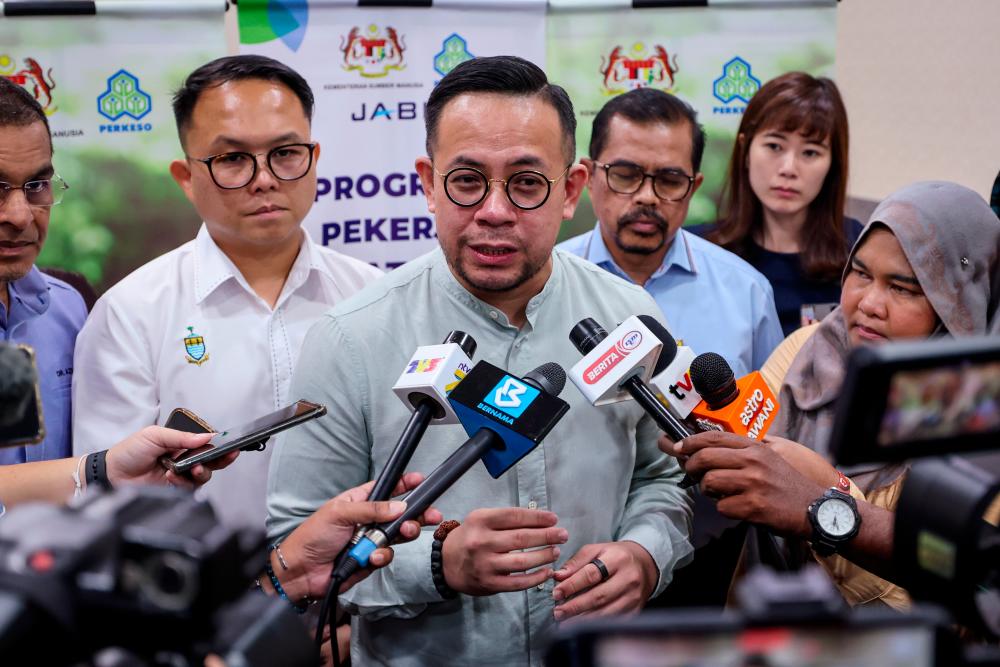GEORGE TOWN: The Social Security Organisation (Socso) is working to open dialysis centres in every state within the next two years, to provide medical services to its contributors suffering from kidney disease.
Human Resources Minister Steven Sim Chee Keong said in this regard, a total of RM24 million has been provided for the construction of the dialysis centres.
“In this two-year period, we allocate RM24 million to build a dialysis centre in each state to provide facilities for Socso contributors suffering from kidney disease.
“Apart from that, Socso also has 700 dialysis centre panels, and covers dialysis treatment for about 17,000 of its contributors, at RM2,100 per person per month,” he told reporters, after officiating the sugar-free campaign, organised by Socso, at Jabil Malaysia Factory in Bayan Lepas, today.
He added that currently there are four Socso dialysis centres, two each in Selangor and Johor, treating 124 patients who are contributors, free of charge.
Meanwhile, Sim said that the results of the health screening conducted by Socso, on 175,526 workers, aged 40 and above, from 2023 until Feb 29 this year, showed that the health of workers in this country was worrying.
He said that the health screening found that 59.59 per cent of workers had high cholesterol (hypercholesterolemia), 23.52 per cent were overweight or obese; 20.45 per cent had high blood pressure (hypertension) and 19.91 per cent of workers suffered from diabetes.
“Unhealthy lifestyles, including excessive sugar consumption, have contributed to the increase in Non-Communicable Diseases (NCDs), and Socso’s expenses to cover contributors’ treatment costs have also increased, which is around RM20 million to RM30 million a year,” he said.
Commenting on the sugar-free campaign, he hoped that it could be widely implemented by Socso, with support from employers, to combat the number of NCDs among employees.
According to him, the first step proposed is the provision of sugar-free drinks at the workplace.
Sim said that the campaign not only affects individuals and employers, but also the country’s productivity as a whole, and hopes that all parties can help close the gap in workers’ health and improve their quality of life. -Bernama









